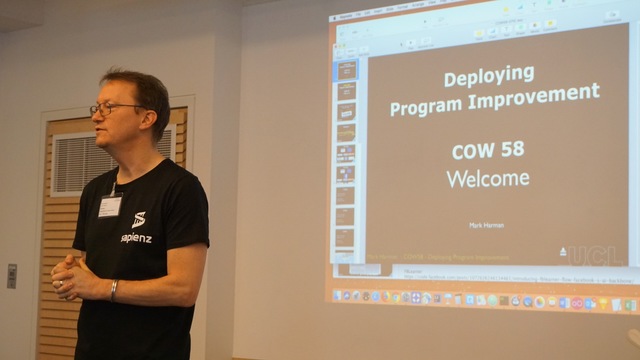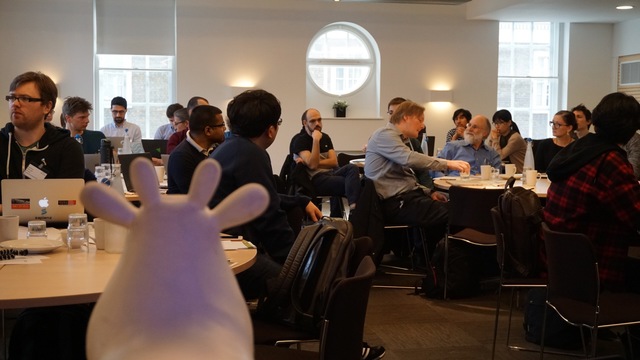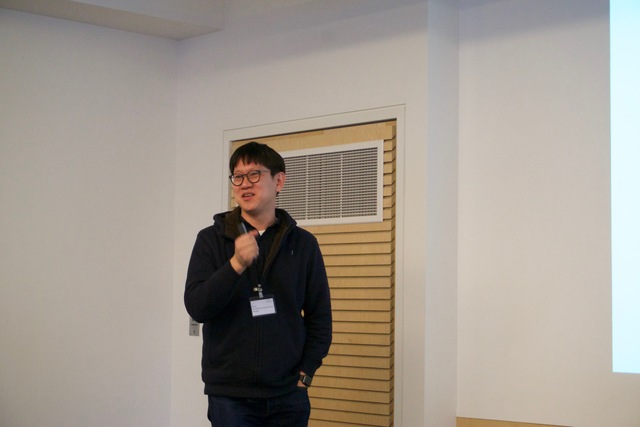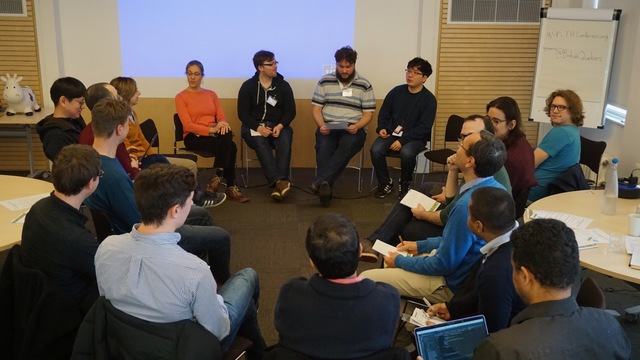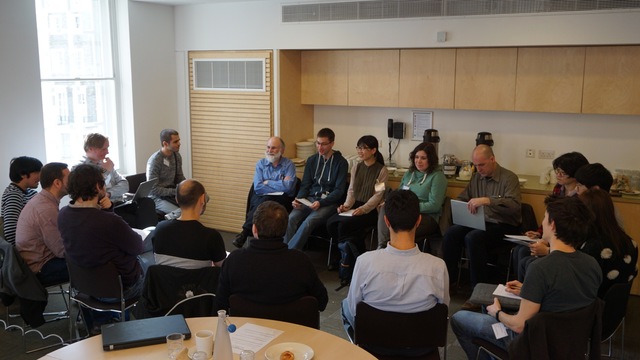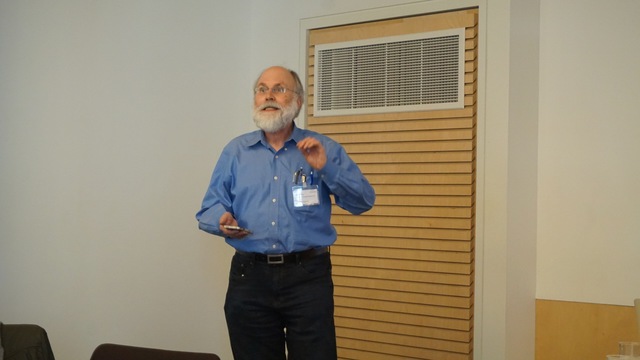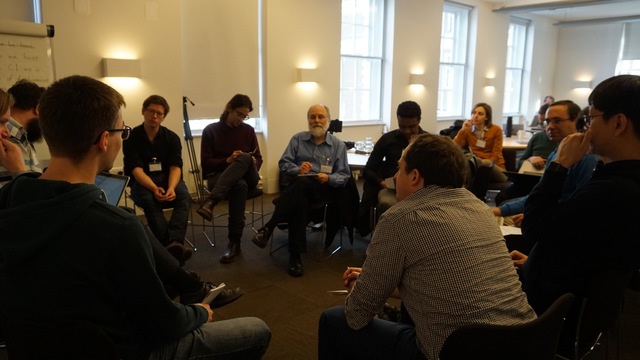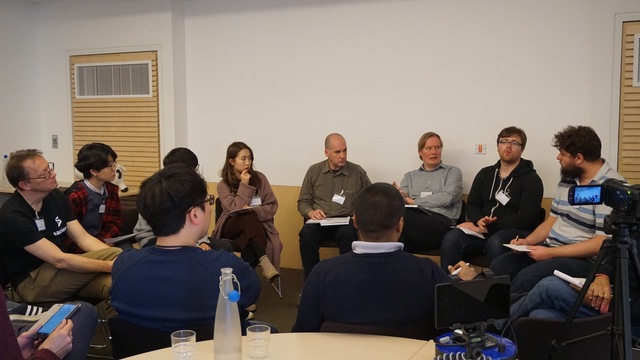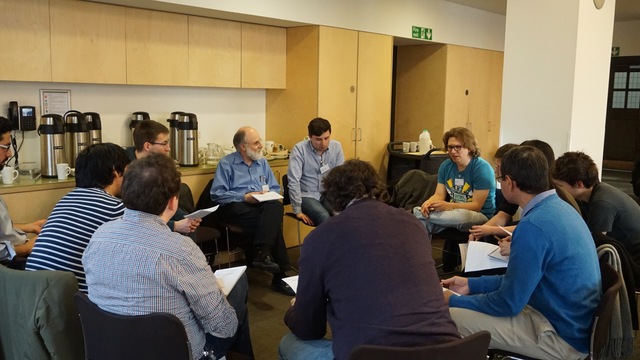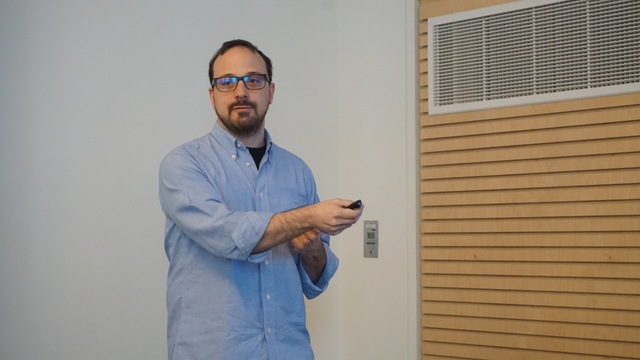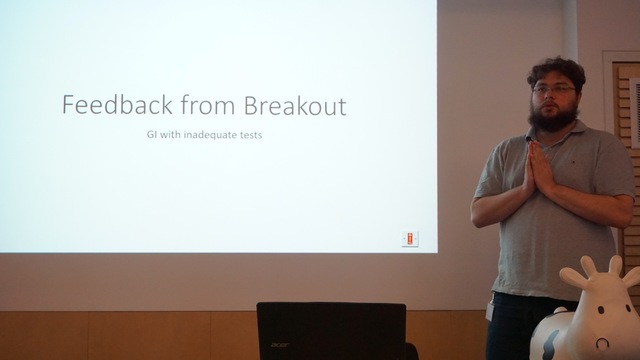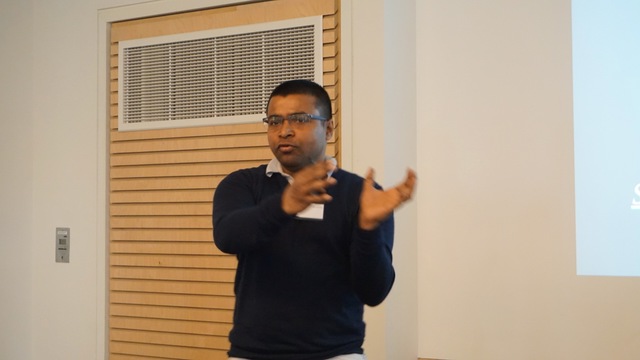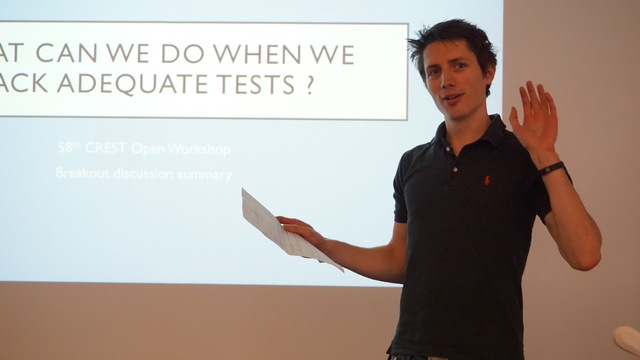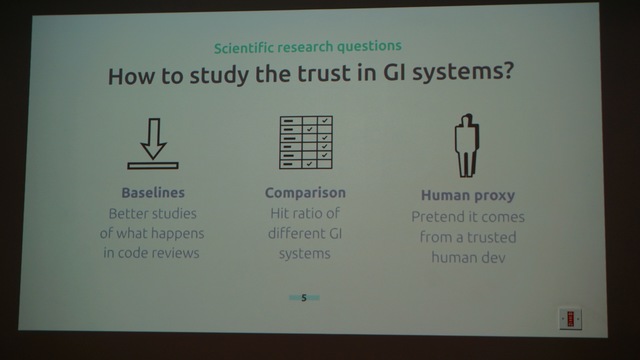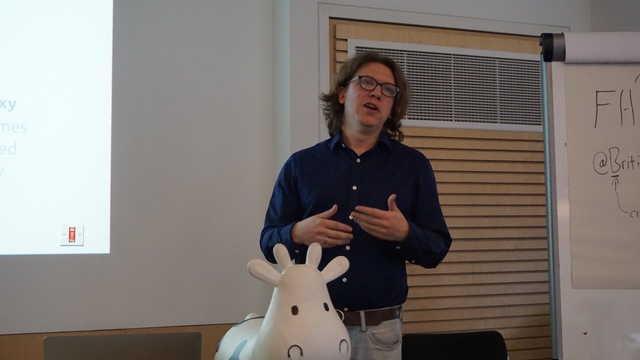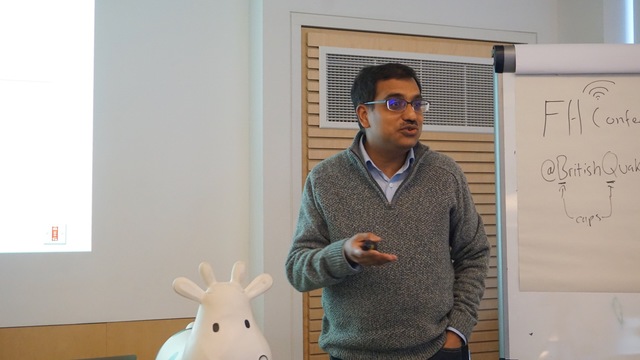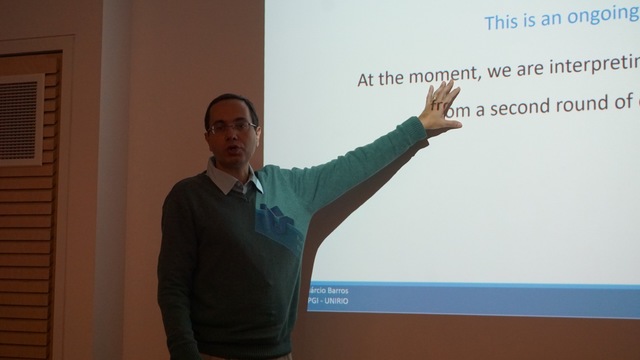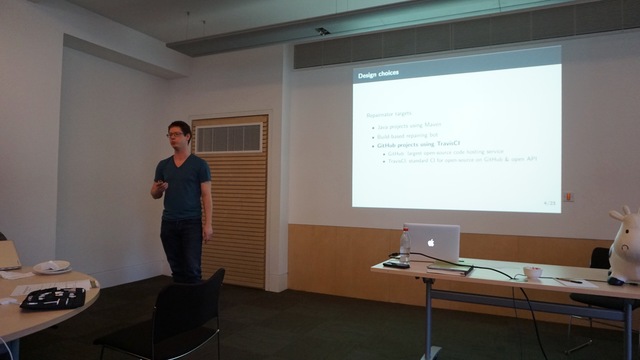The 58th CREST Open Workshop - Automating Programmers’ Programming Experiments for Analytic Result Reporting in Code Review and Continuous Integration
Date: 26th and 27th February 2018
Venue: Friends House, 173-177 Euston Road, London NW1 2BJ
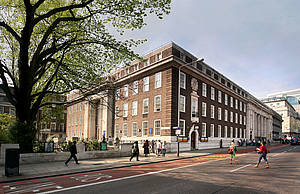
Overview:
This workshop seeks to bring together researchers working on Automated Repair, Empirical Software Engineering, Genetic Improvement, Program Analysis & Synthesis, and Software Testing & Transplantation explore the possibility that automated scientific experimentation could and should be part of automated program improvement: Whereas human engineers are too time-constrained to perform extensive systematic experimentation that documents and justifies their code changes, the machine is comparatively unconstrained.
Advances in automated program improvement suggest an exciting future in which automated techniques combine with human insights and domain expertise to collaborate on the challenge of improving software systems. In this workshop we address the research question: How can we best combine and exploit the machines’ ability to automatically navigate large improvement search spaces with human insight, decision making and domain expertise?
Much of the tech sector deploys through continuous integration, underpinned by modern code review, thereby providing a readily re-targetable infrastructure for machine-human collaboration on code change. The workshop seeks to accelerate industrial deployment by exploring the requirements for code improvement techniques that automatically provide systematic, well-documented, empirical evidence to the human code reviewer that supports the suggested program improvements they have found.
http://geneticimprovementofsoftware.com/
Speakers and schedule:
Day 1
10:00 Pastries
10:30 Welcome and introductions Mark Harman, CREST Centre, SSE Group, Department of Computer Science, UCL, UK
11.00: Shin Yoo, Korea Advanced Institute of Science and Technology, South Korea - Hammer and Nail for GI
11.30 : Break out (two groups): What techniques and deployment modes will tend to improve trust in automatically improved code and how to we surface and evaluate these “trust issues” as a research questions?
12:30 Lunch
13.30: Wolfgang Banzhaf, Department of Computer Science and Engineering, Michigan State University, USA - Progress in Structural Evolution for Bug Repair in JAVA
and
Yuan Yuan, Department of Computer Science and Engineering, Michigan State University, USA
14.00: Break out (two groups): How do we best exploit Continuous Integration as a means of deployment and what research questions does CI deployment pose?
15:00 Refreshments
15.30 Chris Timperley, School of Computing Science, Carnegie Mellon University, USA - Automated Program Repair: Opportunities, Challenges, Advances (Slides, Videos: 480p, 720p)
16.00: Break out: How can be best improve techniques so they can be deployed on systems for which available tests are inadequate and where, perhaps, correct-by-construction approaches cannot be deployed (e.g. due to scale)?
17:00 Close
18:00 Pescatori
Day 2
10:00 Pastries
10.30: Mike Papadakis, SnT, Luxembourg University, Luxembourg - Mutation Testing and Automated Program Improvement (Slides)
11.00: Presentations, feedback and discussion Monday’s breakout sessions (one presenter per group); 6 groups: 15 mins each
Stefan Forstenlechner - Slides
Marinos Kintis - Slides
Mani Sarkar - Slides
Matheus Paixao - Slides
Iason Papapanagiotakis-Bousy - Slides
12:30 Lunch
13.30: Abhik Roychoudhury, School of Computing, National University of Singapore, Singapore - Perspectives on Automated Program Repair (Videos: 480p, 720p)
14.00: Marcio Barros, Federal University of the State of Rio de Janeiro, Brazil - Local Optimization of JavaScript Code (Slides, Videos: 480p, 720p)
14.30: Discussion
15:00 Refreshments
15.30 Simon Urli, University of Lille and Inria, France - How to Design a Program Repair Bot? Insights from the Repairnator Project (Slides, Videos: 480p, 720p)
16.00: Next steps discussion:
What can we deploy now?
What can we deploy soon (by Jan 1st 2019)?
What can we deploy between 2019 and 2021 inclusive (the lifetime of a typical grant, plus application processing time)?
Notes from discussion.
17:00 Close
This workshop is supported by the following sponsors:

Registration:
Registration for this workshop is now closed.
Registered attendees:
1. Mark Harman, CREST Centre, SSE Group, Department of Computer Science, UCL, UK
2. Matheus Paixao, CREST Centre, SSE Group, Department of Computer Science, UCL, UK
3. Marcio Barros, Federal University of the State of Rio de Janeiro, Brazil
4. Bill Langdon, CREST Centre, SSE Group, Department of Computer Science, UCL, UK
5. Shin Yoo, Korea Advanced Institute of Science and Technology, South Korea
6. Gabin An, Korea Advanced Institute of Science and Technology, South Korea
7. Jinhan Kim, Korea Advanced Institute of Science and Technology, South Korea
8. Abhik Roychoudhury, School of Computing, National University of Singapore, Singapore
9. Mike Papadakis, SnT, Luxembourg University, Luxembourg
10. Yuan Yuan, Department of Computer Science and Engineering, Michigan State University, USA
11. Wolfgang Banzhaf, Department of Computer Science and Engineering, Michigan State University, USA
12. Bobby Bruce, CREST Centre, SSE Group, Department of Computer Science, UCL, UK
13. Jens Krinke, CREST Centre, SSE Group, Department of Computer Science, UCL, UK
14. Chaiyong Ragkhitwetsagul, CREST Centre, SSE Group, Department of Computer Science, UCL, UK
15. Stefan Forstenlechner, Natural Computing Research and Applications Group, University College Dublin, Ireland
16. Brendan Cody-Kenny, Natural Computing Research and Applications Group, University College Dublin, Ireland
17. Joost Noppen, BT Research and Innovation - BetaLab
18. Chris Timperley, School of Computing Science, Carnegie Mellon University, USA
19. DongGyun Han, CREST Centre, SSE Group, Department of Computer Science, UCL, UK
20. Leandro Oliveira de Souza, Universidade Federal da Bahia, Brazil
21. Jie Zhang, Institute of Software Engineering, Peking University, Beijing, China
22. Julian Ghionoiu, BeFaster
23. Tracy Hall, Department of Computer Science, Brunel University, London, UK
24. Simon Urli, University of Lille and Inria, France
25. Serkan Kirbas, Bloomberg
26. Mohammad Ghafari, University of Bern, Switzerland
27. Mani Sarkar, Prodo.ai
28. Federica Sarro, CREST Centre, SSE Group, Department of Computer Science, UCL, UK
29. Gabriela Ochoa, Computing Science and Mathematics, University of Stirling, UK
30. Iason Papapanagiotakis-Bousy, CREST Centre, SSE Group, Department of Computer Science, UCL, UK
31. Marinos Kintis, SnT, Faculty of Science, Technology and Communication, University of Luxembourg, Luxembourg
32. John Woodward, Computer Science, Queen Mary University London, UK
33. Jeongju Sohn, Korea Advanced Institute of Science and Technology, South Korea
34. Robert White, CREST Centre, SSE Group, Department of Computer Science, UCL, UK
35. Nassim Seghir, CREST Centre, SSE Group, Department of Computer Science, UCL, UK
36. Carlos Gavidia, CREST Centre, SSE Group, Department of Computer Science, UCL, UK
37. Earl Barr, CREST Centre, SSE Group, Department of Computer Science, UCL, UK
38. Michael Tautschnig, Queen Mary University of London & Amazon Web Services
39. Bruno Marnette, Prodo.ai
40. Nora Petrova, Prodo.ai
41. Alex Marginean, CREST Centre, SSE Group, Department of Computer Science, UCL, UK
Photos:
